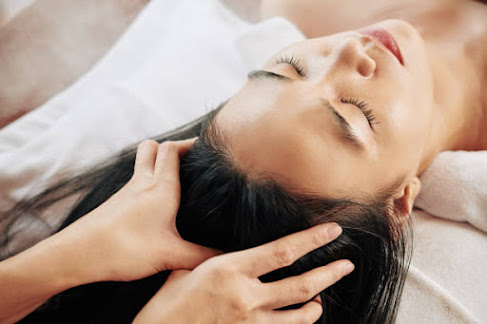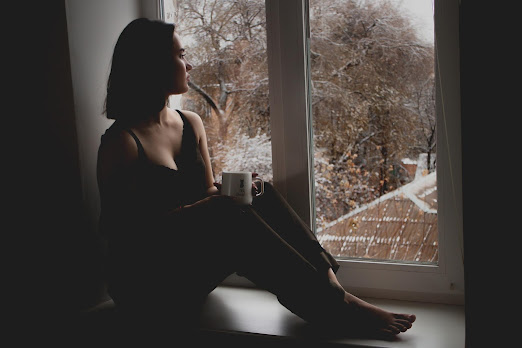It is already occurring to you if you are fatigued while reading this brief post...
An estimated 100 million Americans have periodic sleep issues, 40 million of them have so-called "sleep disorders," while more than 75% of the population is sleep deprived on a regular basis. According to studies, the situation is simply becoming worse with each passing decade, with little indications of improving. In fact, there has been a surprising 33% rise in those of us experiencing difficulty sleeping in only the last 5 years! Can you fathom what statistics will look like in another decade? Unfortunately, it does not seem like we are on the correct track. (More statistics are available at the following URL: http://www.sleepfoundation.org/.)
In our hectic, fast-paced environment, it seems that we are continuously moving, thinking, and attempting to do "more." Aside from catching up on sleep, the first thing many of us think of doing when we have so-called "free time" is watching a little TV or doing something we have "not had the opportunity to accomplish." And more sleep, of higher quality and quantity, is precisely what most of us need.
Sleep studies clearly reveal that not getting enough quality and quantity of sleep has a detrimental impact on our lives, sometimes significantly. It has the potential to drastically alter how we see and experience our lives and the world around us.
Some of the following indicators might assist us in determining whether we are not getting enough quality sleep each night:
* Feelings of exhaustion at some point throughout the day
* Getting into bed and falling asleep within a few minutes
* Lower levels of intolerance and higher levels of hostility
* Impairment in concentration
* Sluggish reflexes
* Impairment of judgment
* Ignorance
* Unexplained weight gain or decrease
* Temperature changes in the body that cause sensations of chilliness
* Unusual anxiety levels
* Dozing off at unsuitable times
* Less inventiveness
* Impairment in the capacity to think clearly or manage difficult jobs
* Increased self-consciousness accompanied by increased anxiety
If you identify with any of these characteristics, you may desire to sleep a bit longer or sounder each night.
Statistics suggest that getting a better night's sleep is one of the easiest methods to enhance the quality of our lives and waking hours. It's a simple solution to a difficult issue.
If you're having difficulties falling asleep, there are several things you can do right away to assist. Yes, the following may seem clear to many people, yet we often overlook the obvious. So, initially, let's go over some fast and simple ones.
Caffeine and nicotine are two things to avoid.
Reduce the amount of caffeine you consume during the day. According to studies, those who suffer from insomnia already have a greater metabolic rate (usually 9%) than those who sleep properly. A typical sleeper's metabolism would be raised to the same pace with roughly 4 cups of coffee. Although the person with insomnia does not feel wide awake and exhibits all of the indicators of not getting enough sleep, we can tell from this biochemical signal that a person who consumes coffee is, on average, significantly physically stimulated. Caffeine, after all, is a stimulant!
In a nutshell, minimize your caffeine consumption throughout the day. Obviously, we will not advise complete abstinence, even if it may be beneficial. Of course, the last thing you want to do is consume coffee within a few hours (three or more) of going to bed.
Caffeine-containing foods and drinks include the following:
* Coffee - Brewed (drip or percolated), instant, and several ostensibly "decaffeinated" coffees
* Tea - Brewed (drip or percolated), instant, and several ostensibly "decaffeinated" coffees
* Cocoa
* Chocolate (Light, Dark, Baker's, and so on): Beverage or Food? Hot chocolate milk is included.
* Most Sodas: Coke, Diet Coke, Mr. PIBB, RC Cola, Diet Pepsi, Pepsi, Canada Dry, and many more.
Next, nicotine use may have a significant impact on our capacity to sleep well. Nicotine, like caffeine, is a stimulant. Nicotine is mostly consumed via smoking. Smoking may cause an increase in blood pressure, brainwave activity, and heart rate.
According to studies, smokers have more difficulty falling asleep and wake up more often throughout the night. It's probable that the latter is a withdrawal symptom. And, when individuals stop smoking after smoking 1 to 3 packs of cigarettes per day for at least two years, studies show that it is easier to fall asleep and sleep more deeply, with fewer nighttime awakenings.
People will not just stop smoking since most smokers are aware of how addictive the practice can be. So, maybe cut down on your smoking and just do it at particular times of the day. Avoid smoking around night and, like with coffee, restrict your use to several hours before bedtime, which may be quite beneficial. If you want to obtain a better night's sleep fast and you smoke cigarettes, quitting smoking is one of the easiest strategies to help you reach your objective.
Bedroom Sleeping Suggestions!
There are many more things we may do to have a better night's sleep, such as inspecting various parts of our bedrooms or sleeping settings. Many of the items on this list will be subjective, so concentrate on a handful and make tiny modifications over time to find out what works best for you.
* Comfortable bed sheets... Silk is romantic, but it is not necessarily practical. Your linens should be able to "breathe."
* Room temperature: not too hot or chilly. Some individuals like to keep the room cool and cover themselves warmly in their bedclothes. If your feet are freezing, just put on socks.
* Noise or Sound: the less, the better, yet some individuals believe that an underlying, steady sound might aid sleep.
* Humidity: If your throat is scratchy/sore, your skin feels dry, or you have blocked nasal passages, your environment may be excessively dry. Whether you feel warm, sweaty, or damp, you should check to determine if the environment is too humid.
* The darker the lighting, the better.
* Drafts: some individuals like them, while others dislike them. Keep an eye out for a painful throat or a tight chest when sleeping. It might indicate that there is a draft in the room. If possible, open a window and let in some fresh air, since stagnant air may get stale.
* Cleanliness: Keep it simple... keep it clean. This may help keep the air fresh and aid with sleep.
* Bed Equals Sleep: Only use and link your bed with sleeping and nothing else. Read or perform "home" work somewhere... not in bed. Associating the bed with things like work or even television might keep us awake at night. Associating it with soothing activities, sleep, or even sex might help us fall asleep sooner and sleep better.
* Clocks: mechanical clocks' click-click-click, digital clocks' brightness, or just having a clock in front of us might be distracting. The steady sound of clicking may be beneficial to certain people's sleep.
* Pillows and Mattresses: Take your time and figure out what works best for you. The new memory foam pillows, although first seeming to be pricey, might be well worth the money. As there are many inexpensive, lightweight memory foam pillows on the market today, be sure they are high-density (approx. 5lbs. per cubic foot) memory foam items. Take your time with your mattress and make sure you can try it out at home so you can return it if it doesn't work for you.
* The most important sleep recommendation of all: BE PATIENT WITH YOURSELF. Determine what works best for you. It is well worth the effort. Simply reading each of the above will help make you aware of things you may not have noticed in the past, which will lead to you improving your own life by getting a better night's sleep. Be patient and take your time.
These are only a few aspects of our sleep environment that may assist us in getting a better night's sleep and improving the quality of our life.
As the numbers plainly demonstrate, most of us are walking around half-awake every day, which means we are most likely not living the best lives we may be, and other parts of our lives may suffer as a result. Inadequate quality sleep may cause both psychical and psychological difficulties.
Take the suggestions above and run with them. Take your time, be patient, and figure out what has worked for others and how you can help yourself enhance the quality of your life by getting a better night's sleep. It's time to halt the trend and reverse America's readily overlooked sleep pandemic.








Comments
Post a Comment